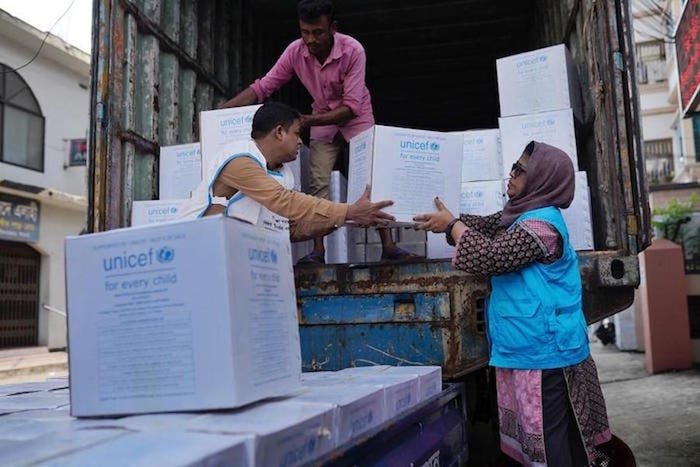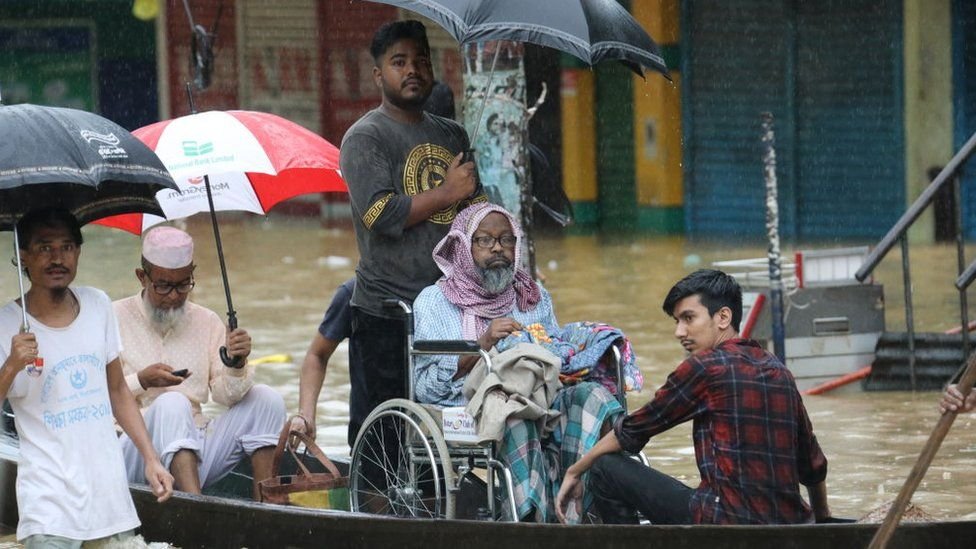Bangladesh, 13 July 2022 (TDI): Martin Griffiths, the UN Under-Secretary-General for Humanitarian Affairs and Emergency Relief Coordinator has announced the allocation of $5 million from CERF in response to the Bangladesh floods.
The Central Emergency Response Fund (CERF) is a United Nations body that ensures the proper allocation of funds in a timely manner.
🇧🇩#Bangladesh: @UNReliefChief has allocated $5 million from the Central Emergency Response Fund (@UNCERF ) to urgently respond to flooding in the country.
↘️https://t.co/JbytypOnpp https://t.co/yUhcZUYBUR pic.twitter.com/9aOmdHNKMQ
— UN OCHA Asia Pacific (@OCHAAsiaPac) July 13, 2022
Bangladesh floods
On 15 June 2022, Bangladesh experienced severe floods in the northeast area. As a result, the flood has washed away many homes and farmlands of over seven million people. Consequently, there was a displacement of about 500,000 people from their homes. Accessing drinking water and sanitation facilities is now an issue.
About 90 percent of medical centers were flooded and this has affected a lot of important health and nutrition services.
UN CERF/CERF
The United Nations Central Emergency Response Fund (UN CERF) was formed in 2005. The United Nations General Assembly (UNGA) established CERF to ensure that urgently needed aid reaches victims of crises. UNGA formed CERF as the UN global emergency response fund on 15 December 2005. CERF fills up the gaps when other funds fail.
The fund aims to enable the delivery of humanitarian assistance effectively and efficiently whenever and wherever a crisis occurs. CERF ensures rapid response to crises.
CERF’s rapid response ensures that countries quickly respond to new emergencies in an organized manner.
The top ten countries funding CERF include Sweden, Netherlands, Germany, Norway, Denmark, Belgium, Ireland, Finland, France, and Australia.
Also read: Islamic relief team responds to Bangladesh floods
Response of other UN agencies
The United Nations (UN) has been offering support to the government by providing food assistance, drinking water, cash, and emergency drugs. They are also providing water purification tablets, dignity and hygiene kits as well as education support.
UNICEF, for instance, has delivered aid in form of water, nutrition, and protection services to almost one million people.

The World Food Programme (WFP) has also delivered 85 metric tons of fortified biscuits to 34,000 houses. On the other hand, the World Health Organization (WHO) has offered 250,000 water purification tablets. Furthermore, the UN Population Fund (UNFPA) assisted pregnant women to access hospitals and provided midwives to offer emergency obstetric support.
Political scientist, poet and author








